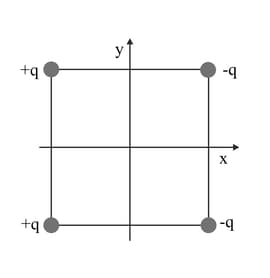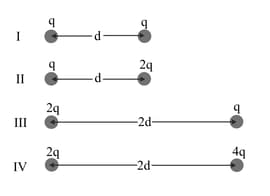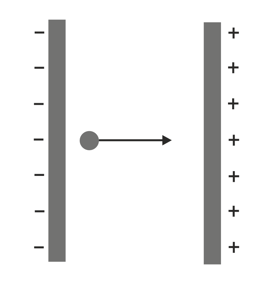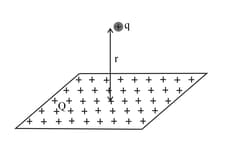K A Tsokos Solutions for Chapter: Fields (HL), Exercise 3: Exam-style questions
K A Tsokos Physics Solutions for Exercise - K A Tsokos Solutions for Chapter: Fields (HL), Exercise 3: Exam-style questions
Attempt the practice questions on Chapter 10: Fields (HL), Exercise 3: Exam-style questions with hints and solutions to strengthen your understanding. Physics for the IB Diploma 6th Edition solutions are prepared by Experienced Embibe Experts.
Questions from K A Tsokos Solutions for Chapter: Fields (HL), Exercise 3: Exam-style questions with Hints & Solutions
Four charges that are equal in magnitude are put at the vertices of a square, as shown in the diagram

Where is the electric potential zero?
Consider two spherical masses, each of mass M, whose centres are a distance d apart. Which of the following is true at the point midway on the line joining the two spheres? (potential; Gravitational field strength respectively)
A probe of mass m is in a circular orbit of radius r around a planet of massM. The probe is moved to a higher circular orbit of radius 2r. What is the work done on the probe?
A positive charge q is placed half way between two long parallel plates that reseparated by a distance 2d. The charge on one of the plates is Q and the charge on the other plate is -Q. The potential difference between the plates is V. What is the magnitude of the force of the charge q?
Shown are four arrangements of two unequal positive point charges separated by various distances. Which two arrangements results in the electric potential energy?

The figure shows two oppositely charged parallel plates a distance d apart.

A proton is launched from the negative plate with initial speed u. The proton just reaches the positive plate. Which graph represents the variation of the speed v of the proton with distance x from the negative plate?
An amount of positive charge Q is placed uniformly on a large plane surface. A small positive point charge q placed a perpendicular distance r from the surface experience a force F.

What is the magnitude of the electric field at the position of the small charge q?
Two charges M and N are separated by a certain distance, as shown in the diagram.

Graphs I, II, and III show the variation of electric potential With distance x from the centre of charge M.
Which of the possibilities below applies o the case of two equal and opposite charges?

